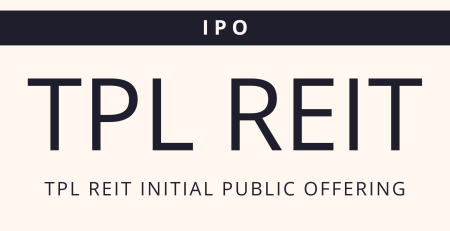AI and its Positive Impact on Today’s Financial Sector
As of 2025, AI is being used in nearly every industry. This growing popularity is due to the fact that AI has immensely refined and simplified tasks that may have previously been performed inefficiently. Let’s look at some benefits it has had specifically on the financial sector:
Virtual Assistants
Chatbots and virtual assistants have significantly contributed to providing personal financial advice to customers as well as enhancing their experience. Although this concept is still emerging in Pakistan, the country has embraced it in various ways within its financial industry.
📢 Announcement: You can now access our services and similar analyses by opening an account with us via JS Global

For example banks such as HBL and Askari bank have helped in providing customers with an easy way to navigate the bank’s services like bill payments, fund transfers, and checking account balances.
The use of these AI powered chatbots is particularly popular amongst US banks such as JPMorgan, Wells Fargo and Capital One. This has proven to be advantageous in terms of increased customer satisfaction, rise in engagement and higher adoption of mobile and digital banking.
For example, according to a report regarding customer engagement, It was reported that 30-40% of Capital One customers engaged with the chatbot at least once a month. Banks like Wells Fargo and Bank of America have also seen a 20-30% increase in mobile banking adoption since implementing AI chatbots.
Do customers trust bots?
📢 Announcement: We're on WhatsApp – Join Us There!
We’ve seen the benefits of these Virtual assistants so far, but do customers actually trust them for financial advice?
According to a PwC survey conducted in 2020, it was reported that nearly 52% of consumers were open to trusting AI-powered financial services. This demonstrates how consumers are willing to embrace AI if it means that it could provide better results than human advisors. Today’s generation has especially adapted well to AI and have expressed that they are comfortable in using it for financial advice.
With its availability lasting 24/7, virtual assistants have proven to be cost and time effective. As stated in a report, some US banks saved up to $0.50 and $0.70 per interaction by using Chatbots since it reduced the need of employees responding to every query of the customer. If a chatbot handles 80% of customer inquiries, it allows human agents to focus on more complex issues, reducing the need for a large team.
Moreover AI not only helps customers but also assists in training new company employees! By providing immediate answers to basic questions and guiding them through processes, this further reduces the need for the company to get resources to manually train them.
This article merely provides a glimpse of the countless benefits AI powered bots bring to banking and other financial industries, proving that the opportunities are endless.
Fraud detection and cybersecurity
AI machine algorithms are now able to analyze large datasets, identify outlier activities and mark them as fraudulent (AI fraud detection systems have been proven to reduce false positives by up to 50%). This not only helps prevent scams but also promotes a fairer and more transparent marketplace. Moreover, It is also constantly being refined to combat emerging fraud trends!
The importance of security in the financial industry (especially for banks, investment firms and insurance companies) cannot be stressed upon enough. If an individual’s personal information, such as their credit card number, falls into the wrong hands, it can pose a huge risk to their financial account.
By constantly monitoring customer behaviour and online transactions, AI tools have been made to predict suspicious activities and prevent any risk. For example, a 2019 report by Deloitte found that AI in cybersecurity could predict up to 60% of cyberattacks, allowing banks to implement measures before an attack occurs.
Although this concept isn’t very popular and is still emerging, US and UK companies are amongst those who have started integrating these AI tools into their services. Some prominent establishments include Goldman Sachs and HSBC, both of which have succeeded in significantly reducing risks of cybersecurity.
It is true that no business is completely safe from cyberattacks and there always remains a threat with new malware being created every other day. However, it is notable that AI has surely been more effective in reducing this threat compared to manual detection which is not only time consuming but also expensive.
Financial trading
Many AI models have been coded to analyze market trends and subsequently process real-time data to generate meaningful conclusions. It decreases research time as well as identifies patterns in the sets of data it analyzes.
AI-powered trading systems work optimally, continuously, and aren’t affected by factors that may limit humans performing the same task
Many companies have had positive experiences with using machine learning algorithms for financial trading, leading to notable benefits. For example, JPMorgan, one of the most popular banks in the US, was previously relying on manual research on market trends and was limited to human expertise in generating valuable insights.
After implementing AI, research has shown that they not only saved approximately $6 billion in cost by improved operations but that there was also a significant reduction in slippage (the difference between expected and actual price) in trade executions by around 25%. Other financial establishments with the same stats include Goldman Sachs, Two Sigma and Barclays.
Why isn’t everybody using trading bots?
If using AI in financial trading is so advantageous and profitable, then why doesn’t everyone use it? Although that may be an ideal plan for everybody, there are many complexities that need to be taken into consideration before deciding to simply install an AI software and live a wealthy life.
The process of creating an algorithm which works as efficiently as the ones that large financial institutions use is a daunting and tedious task. It not only requires the need of professionals with expertise in programming, but can be significantly expensive as well.
Furthermore, the more people use AI in trading, the more competitive the market becomes. This can be an unfavorable factor for some as they may lose profit in the long run.
In conclusion, while it has proven to be a powerful tool for trading for large financial institutions, AI algorithms should not be adopted by individuals due to its complexities and challenges.
Besides these advantages, AI has made a major contribution in the growth of the financial sector and many more refinements are being made to its algorithms to prove highly successful in future projects in financial markets.
⚠️ This post reflects the author’s personal opinion and is for informational purposes only. It does not constitute financial advice. Investing involves risk and should be done independently. Read full disclaimer →












Leave a Reply